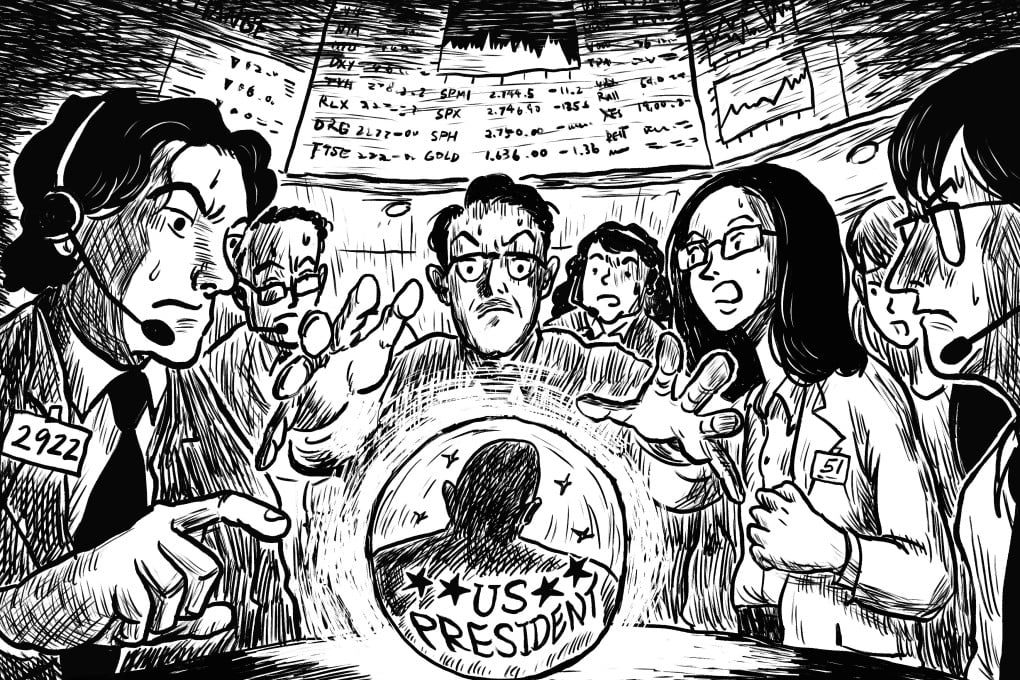US elections: Who is better for the stock markets of China and Hong Kong, a Democrat or Republican president?
- S&P 500 index rose during eight of the past 10 US presidential terms, with the biggest gains made during the first terms of Bill Clinton and Barack Obama
- Still, Donald Trump’s tenure has seen the US and Chinese stock indices scaling historic peaks, prompting some traders to keep the good times going

As voters in the United States prepare for the presidential election in November, the South China Morning Post takes a look at the correlation between the occupant of the Oval Office and global stock markets. In this 14th part of the series, Yujing Liu looks at 40 years of market data to see whether a Democrat or Republican was better for the markets in China and Hong Kong.
Traders from Wall Street to Central to Shanghai’s Lujiazui are looking for clues to ascertain where global equities are headed, as four years of a roller-coaster ride in the financial markets during a volatile American presidency approaches its end.
The S&P 500 index advanced during eight of the past 10 US presidential terms since 1981, comprising four Republicans and two Democrats in the Oval Office, with the biggest gains recorded during the first terms of Bill Clinton and Barack Obama.
Traders are hoping for a replay of the market euphoria during the two first-term Democratic administrations, as they correlated with the biggest increases in the key indices of Hong Kong, Shanghai and Shenzhen, according to four decades of data.

11:15
Trump vs Biden: The 2020 US presidential election
Notwithstanding US-China relations at their lowest point in decades, Donald Trump’s tenure has seen the US and Chinese stock benchmarks scaling historic peaks, buoyed by US$8 trillion of central bank funds unleashed around the world to combat the coronavirus-led recession.
That leaves traders with the vexing questions: where will China and Hong Kong markets go after November 3? Who is better for the stock market – a Democrat or Republican president?